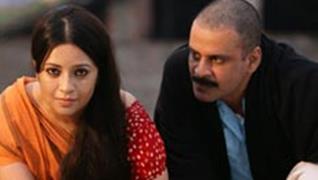Indian film movement today is much more vibrant than ever with young directors playing a significant role in infusing a modern sensibility into cinema, feels veteran Shyam Benegal
"My criticism of popular Indian Cinema before I became a filmmaker was that it neither created a credible reality nor did it reflect any of the complexity of Indian culture or society. However, I have revised my views
considerably since then," Benegal said while delivering the 10th Dada Saheb Palke Memorial Lecture last night.
The 77-year-old filmmaker, a pioneer in the new cinema movement of the 70s and early 80s, is known for directing path-breaking films like 'Ankur', 'Nishant', 'Manthan' and 'Bhumika'.
The Dada Saheb Palke Award winner said, "Over the years, the graduates of the Film & Television Institutes both in Pune and Kolkata have played a significant role in infusing a modern sensibility into the Indian
Cinema - more in the regional language than in the mainstream Hindi Cinema. Yet another aspect of past modern Hindi Cinema is the gradual disappearance of rural India in most of the films being made today."
Benegal said that directors like Anurag Kashyap, Vishal Bhardwaj, Dibakar Banerjee, Sujoy Ghosh, Shoojit Sarkar and scores of others in Hindi Cinema and some in Bengali, Tamil, Telegu and Mallyalam are making
films with a sense of reality. The director said he likes films like 'Delhi Belly', 'Gangs of Wasseypur' and 'Shanghai' as they are dealing with a sense of reality.
The director also released 'Kaal', a new novel by Sangeeta Bahadur, director of the Nehru Centre and opened the South Asian Cinema Foundation's Shyam Benegal Exhibition on the occasion.
Benegal said, "Like Hollywood, popular Indian cinema too, has largely projected lifestyle and values that have shaped aspirations, particularly among the urban Indian middle classes. It projects a view endorsed by the
film industry as being socially integrating and offering a homogenous view of India and its culture."
The director said that since films have to succeed at the box office filmmakers are compelled to find common denominators that would appeal to the largest number of people cutting across social and cultural
diversities. In his lecture, Benegal recalled how during the colonial period, Indian films often dealt with subjects that showed Indian tradition as being threatened by the corrupting influence of western culture.
"The first radical departure from the conventions of traditional Indian cinema took place with the films of Satyajit Ray from the middle of 1950s. Ray brought to the Cinema a genuinely modern sensitivity and an
independent manner of expression within the world he created," Benegal said.
Indian film movement is much more vibrant now: Shyam Benegal
Wednesday, June 13, 2012 11:03 IST



















